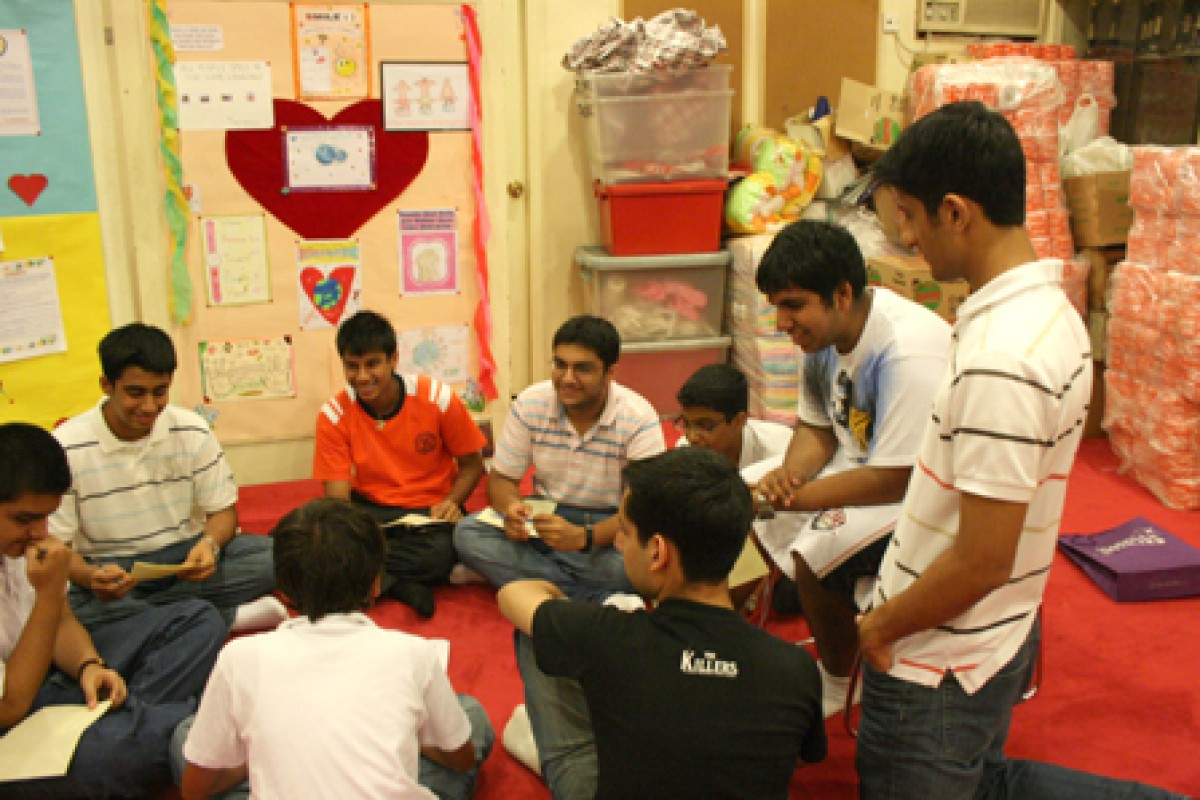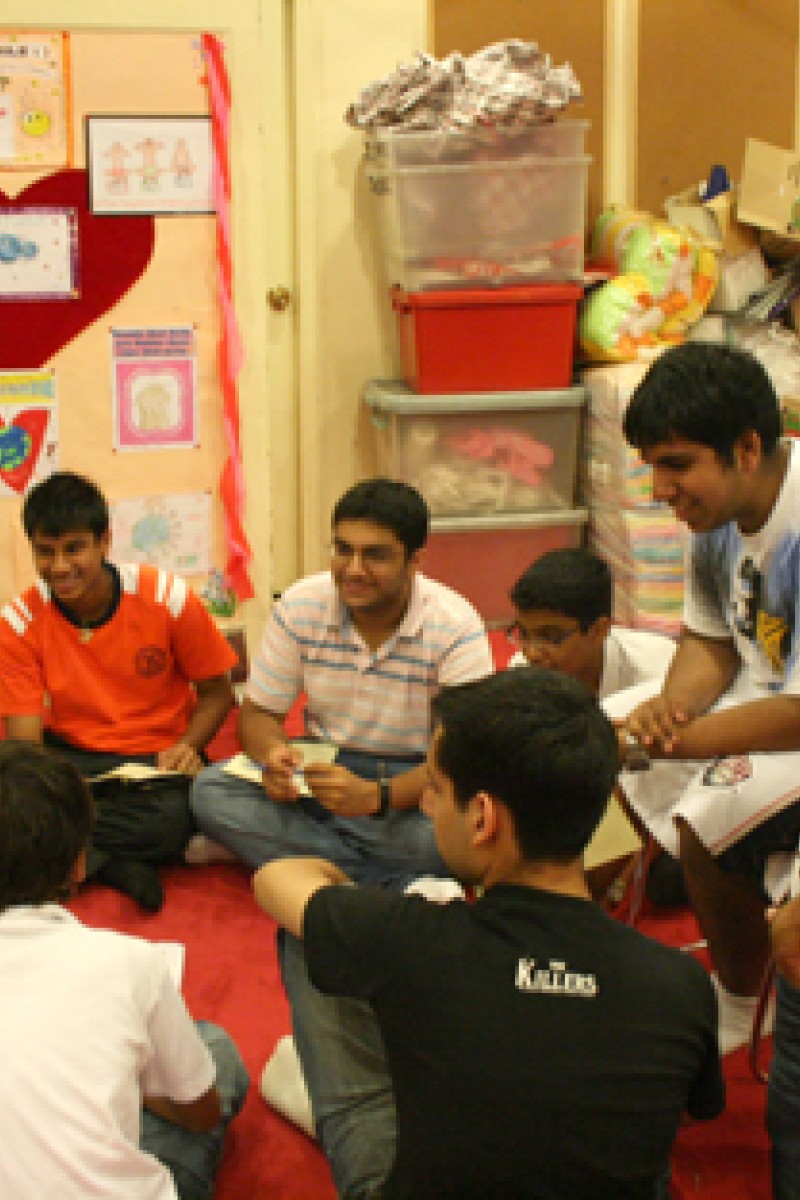 Teenagers discuss religion at the Sathya Sai Baba Centre of Hong Kong. The centre teaches young people how to apply Hindu values to their lives.
Teenagers discuss religion at the Sathya Sai Baba Centre of Hong Kong. The centre teaches young people how to apply Hindu values to their lives.But, teenagers who come from other cultures face the added risk of disconnecting from their heritage. These young people are known as Third Culture Kids, a term used to describe children who spend more time in a culture other than their own. A growing number of these teenagers are losing touch with their cultures, according to Gautam Daswani, a youth co-ordinator for the Sathya Sai spiritual group in Hong Kong.
At the group's local headquarters, the Sathya Sai Baba Centre of Hong Kong, young people of all ages learn about Hindu culture, morals and values, as well as ways to apply them in their daily lives.
Twenty-one-year-old Suraj Samtani started going to the centre at a young age.
He sees himself as a Third Culture Kid and believes that culture should be important in everyone's lives.
'It is a collection of norms, rules, and expectations that govern the social actions of its subjects' he says.
At first, Samtani found Indian culture complicated, but it did not stop him from wanting to learn more about it. 'I didn't have all the answers,' he says. 'In cultures like Hinduism, there are so many variations of it that it can be confusing and can lead to more questions than answers.'
Samtani has lived in Hong Kong since he was born and believes things would be much different if he had been born in India. 'I would know more about my culture and be more religiously devoted to it, but in a foreign place my views are mixed because the local culture has an impact on them,' he says.
Attending a local university for the past three years has also made him realise his culture is not 'the ultimate'.
Samtani thinks that many teenagers base their identity on the culture of the place they live in, and they forget all about their cultural origins. 'Culture affects a person's social identity, because it describes what school of thought one may adhere to,' he says.
Many Third Culture Kids in Hong Kong admit to knowing nothing about their cultures and Daswani thinks this is just not good enough.
'It's up to older youths and parents to help a child realise their own culture,' Daswani says.
But, 17-year-old Edwin Ho Pak-hei, a Hong Kong-born Canadian who also sees himself as a Third Culture Kid, says it's not up to his parents to make sure he understands his Chinese culture. 'I'm the one responsible for inquiring about it.'
Not all Third Culture Kids think the term applies to them. Seventeen-year-old Raj Amarnani says: 'Even though there is a majority Chinese culture here, kids can still keep in touch with their own culture.'
Bimal is a Young Post intern
<!--//--><![CDATA[// ><!-- PDRTJS_settings_2455796 = { "id" : "2455796", "unique_id" : "default", "title" : "", "permalink" : "" }; //--><!]]>